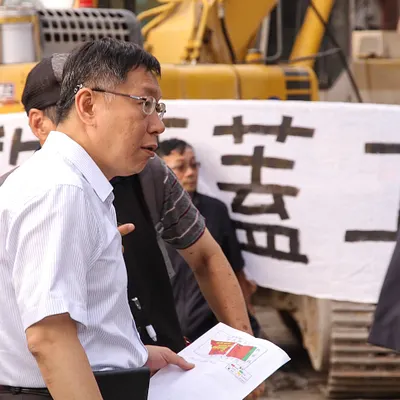首頁 風生活 這些英文字和用法很過時!寫進email裡,在外國客戶眼中是冗長又囉嗦
這些英文字和用法很過時!寫進email裡,在外國客戶眼中是冗長又囉嗦 這些過時用法可是會讓外國人笑話的!(圖/StartupStockPhotos@pixabay)
Jane的部門來了新同事,這同事的英文看似專業,寫的Email既長又多,Jane以為她的美國老闆以後一定會更願意和新同事溝通,因為其他人英文沒那麼好。但事實相反,老闆很少寫email給這位新同事,Jane後來才聽說,原來老闆說這樣的溝通太〝long-winded〞、〝old-fashioned〞。意思是太囉唆,沒完沒了,而且老派。
寫得更長、更複雜不代表英文更好。英語國家七O年代開始提倡簡單英語(plain English),大刀闊斧刪掉文謅謅的、打官腔的字眼。至於哪些些表達會讓人覺得囉唆又老派,來看一個例子:
As per our previous conversation, I am writing to follow up on our earlier decision on the marketing campaign in Q2. Attached herewith please find the revised proposal for your perusal. (就先前我們談過的,我寫信來是要追蹤我們先前對於第二季行銷活動的決定。附件是修正後的計劃書,請提供您寶貴意見。)
1.As per our previous conversation就先前我們的談話這個用法二十幾年很流行,很多每封Email的開頭都是〝as per〞,但時下商業溝通講求精簡,這樣說顯得老套,而且previous很多餘,直接用As we discussed/As discussed就好。
As per your request ... =>As you requested As per our agreement ... =>As we agreed As per your instructions ... =>As you instructed
2.Attached please find…附件是…
以前人們依賴紙本信件溝通,〝Enclosed please find….〞也曾經風行一時。但年輕一輩發現,根本沒有任何東西要〝find〞,這麼寫看起來像律師函,沒道理。還有人會用please see attached,這也不自然。現在大家更愛用I'm attaching/I've attached,或直接用Attached is…。
Attached please find the following receipt. =>Attached is the receipt. (附上收據)
3.Herewith隨函Herewith、hereby、herein這些都很拗口,雖然有些文化悠久的商號還改不了口,但直接用here更簡要。
4.Perusal仔細研究這個字少見少用,但還真有一位在外商銀行工作的學生寫信就用了這個字,他說在網路學到就用了,這個字改成review 更自然。
以精簡原則修改,原來長長一串的email只要一句話:
As discussed, here is the revised marketing campaign for Q2 for your review.
還有以下這些email用語,也已經過時,請用更精準的表達取代它們吧!
5.Please be advised ...我(們)要通知你...聽起來太像官樣,像銀行寄信告訴你,貸款到期的那種信。直接去掉即可。Please be advised that the check is overdue.=>The check is overdue.
6.Please do not hesitate to contact me. 請隨時聯絡我這句話已經用了半世紀之後,已經成了沒有意義的陳腔濫調,說了等於沒說。改成please call me. 這類更直接有力的訴求。
本圖/文經授權轉載自世界公民文化中心 (原篇名:Attached please find….Email不再用過時的字眼了)
更多新聞請搜尋🔍風傳媒
因為你,我們得以前進,你的支持是我們的動力
贊助風傳媒
更多文章
復興航空墜河調查:機師有3次挽救機會 均未正確處置 復興航空航機GE235於2015年2月從松山機場飛往金門時,剛起飛後不久便墜入基隆河,造成43人罹難、15人受傷。飛航安全調查委員在6月30日發布「事故調查報告」,指出主因為飛航操作與發動機瑕疵2大問題,而士林地檢署今(13)日偵查終結,認定被告復興航空董座林明升等共11人犯罪嫌疑不足,至於機師廖建宗、劉自忠2人,因已於空難中身亡,故均不起訴處分。
輔大性平》夏林清女兒:飽受騷擾 輿論先入為主 輔大性侵案5月29日在臉書披露後,引發社會輿論譁然,案件處理過程與相關涉入人士的「案外案」成為焦點。勵馨基金會13日召開記者會,痛批教育部與輔大校方始終未積極了解、處理此案,嚴重忽略受害者的聲音。輔大社科院長、心理系教授夏林清女兒鄭小塔也在記者會現場發言,她表示,因為幫母親轉遞訊息而被網友指控支持強暴犯,飽受網路信件騷擾,甚至夜歸時遭人跟蹤。鄭小塔認為,輿論卻都已先入為主,未思考發文的真實性。
遭李來希罵白痴 朱澤民:被智障罵白痴,我不會介意 日前行政院主計長朱澤民在接受媒體專訪時表示,中央總預算籌編困難,明年高軍公教將不調薪,如果軍公教薪資調高1%,國庫負擔將增加新台幣70億元。全國公務人員協會理事長李來希在臉書上PO文痛斥朱澤民是「一個不折不扣的大白痴!」,但今天7月13日朱澤民在立法院備詢時回應「我被智障的罵白癡,我也不會介意」。
美國總統大選》鞏固黨內團結 桑德斯終於表態 力挺希拉蕊進軍白宮 2015年4月,美國前國務卿希拉蕊及佛蒙特州參議員桑德斯,相繼宣布投入初選,爭取民主黨提名,角逐下屆總統大位,經過14個月的黨內競爭,桑德斯12日終於表態支持希拉蕊,並稱會協助希拉蕊擊敗共和黨準總統候選人川普。不過希拉蕊的政策與桑德斯立場大相逕庭,因此如何吸取桑德斯支持者的選票,鞏固民主黨內團結,成為希拉蕊的當前首要課題。
南海仲裁案 宋燕輝:新政府應抓緊時機向中國遞「橄欖枝」 荷蘭海牙的常設仲裁法院(PCA)12日公布「菲律賓訴中國仲裁案」(TheRepublicofPhilippinesv.ThePeople'sRepublicofChina)裁決,菲律賓訴求幾乎全被採納,大獲全勝。中研院歐美所研究員宋燕輝在接受《風傳媒》採訪時分析,菲國看似打出一支漂亮「全壘打」,但若緊抓裁決書當聖旨,對中國步步進逼,反而會引發北京當局用激烈手段反制,升高南海緊張,讓自己從贏家變輸家。對台灣而言,裁決結果是挑戰也是機會,新政府應抓緊時機向中國遞出「橄欖枝」為兩岸關係加分。
南海仲裁案出爐》太平島是「礁」不是「島」宋承恩:何以致之?如何應對? 海牙常設仲裁法院12日針對菲律賓所提交的南海仲裁案作出裁決,菲律賓所提出的15項訴求可說大獲全勝,除了中國在南海的主權遭到大幅限縮,影響所及,連我國的太平島也被判定僅是「礁岩」,而非可以主張200浬專屬經濟區的「島嶼」。消息一出,國內政治人物與民眾大多感到無法接受、難以理解。
南海仲裁案掃到 黃志芳:若能理性對話 不影響新南向 南海仲裁案昨天出爐,經濟部主辦的「2016台灣-東協投資策略夥伴論壇」,卻無巧不巧地選在今天舉行,受邀的菲律賓、越南經貿投資部門官員,接受媒體訪問時,都刻意避開南海仲裁議題,但協助受訪的經濟部投資處官員卻繃緊神經,擔心二國官員受訪時擦搶走火,官員私下表示,這次來賓之一的日本籍東協暨亞太經濟研究所IzuruKobayashi,原本也在媒體受訪名單,但因為這次南海仲裁案的仲裁法官也是日本籍,主辦單位擔心他也被無端捲入南海仲裁案,最後決定婉拒媒體訪問。
南海仲裁案出爐》 姚立明:台灣應避免與中國論述合一 南海仲裁結果12日公佈,針對包括太平島在內的南海諸島島礁地位,仲裁庭判決為「礁岩」而非島,因此我國僅能主張太平島的12浬領海,而非200浬的經濟海域,引起國人議論紛紛。中國國台辦則向台灣發出宣言「兩岸同胞有責任共同維護南海領土主權」,對此國會觀察基金會董事長姚立明也表達看法。
北市房屋稅將漲? 財政局長:9月底提出試算結果討論 又到了地方政府3年1次檢討房屋稅的時間了!針對近日民眾擔心台北市政府調漲房屋稅而引起的反彈,甫上任的財政局長陳志銘今(13)日召開釋疑記者會,他表示,接下來將針對房屋稅做出檢討,會依法納入相關因子跑計算公式,預計今年9月府內會提出,並同步檢討修正相關作業要點,兼顧租稅公平與民眾可負擔現實,按往例,將於隔年的5月開徵。
中國要「兩岸共同維護南海祖產」 陸委會:不可能認同 針對南海仲裁案,中國在仲裁前後都稱「兩岸共同維護祖產」,國台辦並為民進黨政府畫出6條紅線,要求我政府支持中國南海維權行為,警告處理不當將重創兩岸關係。陸委會主委張小月今(13)日在立院表示「不可能認同」,並重申我政府主張多邊協商機制、和平處理爭議。 民進黨立委李俊俋說,國台辦的「6條紅線主張」,是中國基於兩岸同屬一中的原則,把台灣和中國綁在一起,他反問張小月「能否認同」?張小月回應「我們不可能認同」,並重申我方主張多邊協商機制,也主張和平處理爭議。
南海仲裁結果 外長李大維:不影響台美關係 針對南海仲裁案結果,外交部長李大維今(13)日赴立法院外交及國防委員會作專題報告。李大維受訪時表示,即便美方表態支持仲裁結果,但這並不影響台美未來關係,因為昨天已和美方交談,美方了解台灣的聲明與背後立場;至於未來是否考慮與中國在南海合作,李大維僅回應「各做各的,各有各的主張」。
強化太平「島」事實,綠委建議可生「太平寶寶」 南海仲裁在12日判定,將我國太平島視為「岩礁」,因我國包含太平島在內的南沙群島需要透過外部補給,無法被判定為可常態居住的島嶼。對此,民進黨籍立委蔡適應在13日立法院外交國防委員會中質詢時提出,可以鼓勵現在島上居民的辦理也移籍太平島,甚至誕生太平島的第一位「原住民」,以證實太平島是可居住的島嶼。
「荷花大師」張杰辭世 享壽 95 歲 國內資深藝術家張杰10日晚間病逝於台大醫院,享壽95歲,文化部長鄭麗君表達哀悼與不捨,並指示藝術發展司及所屬國立台灣美術館儘量協助家屬處理治喪事宜。
「講道理沒用就講拳頭」藍委批蔡英文:國人要看的是登島不是登艦 南海仲裁結果12日出爐,仲裁庭將太平島判定為岩礁,並否定中共「9段線」的歷史權利,主張無法律依據。國民黨立院黨團今(13)日上午召開記者會,主張太平島應開放觀光,並加派陸戰隊長期駐守。國民黨立委呂玉玲更建議,我方應立即增加駐兵數量和砲彈,在南海進行實彈演習及兩棲軍演,「現在講道理、講法都沒有用,就要講拳頭!」
南海仲裁案》台大國際法教授姜皇池:仲裁庭擴權,有損國際法治 中國依據「九段線」劃定的南海版圖,以及南海島礁是否構成島嶼要件,向來是南海爭議核心,荷蘭海牙常設仲裁法院12日就菲律賓指控中國未依《聯合國海洋法公約》行使海洋權利作出裁決,認為中國依「九段線」主張的「歷史性權利」沒有法律依據,也判定太平島是「岩礁」而非「島」。對此台大國際法教授姜皇池認為,法院就這2點做出的判決恐將使其威信受損,對國際法治反將有害。
尼伯特來襲前通過加牛進口 立委痛批「偷渡」 加拿大去年2月13日出現狂牛症案例,因此台灣採取暫停受理所有加拿大牛肉產品的輸入查驗,直到今年7月8日才恢復輸入,不過當時正是尼伯特颱風侵台關鍵時刻,衛生福利部卻恰好選在同時間解除管制,引起許多立委質疑其程序正當性,甚至被形容是「偷渡成功」。
避免核一因停機1年除役? 黃國昌疑台電造假大修 日前供電危機讓台電再提重啟核一1號機計畫,引發各界爭議,部分環團更主張,核一1號機已停止運轉超過1年、應視為永久停止運轉。而時代力量立委黃國昌今(13)日在立院質詢時指出,台電為了不讓核一1號機被視為永久停用,不斷向原能會申請大修、實際上卻沒有維修事實,建議台電應考慮提前除役。
今日的酸民,明日的貴人!讓那些酸言酸語成為你前進的動力吧! 謝謝那些曾經瞧不起我的人,謝謝你們給我很大的打擊,讓我一直很努力!女星蔡依林Jolin在香港出席了南韓年度盛事「Mnet亞洲音樂大獎」(簡稱MAMA),她一身深V性感勁裝登台演唱主打歌《Play我呸》,邊唱邊跳面不改色,深厚唱跳功力讓台下觀眾看到張嘴傻眼,瞬間現場尖叫聲不斷!表演結束後,蔡依林從頒獎人手中拿下了2015年MAMA最佳亞洲(華語)歌手大獎,台灣網友振奮,直呼她是「台灣之光」,她的魅力也因此風靡全亞洲。
「我最近幹了一件偉大的事」柯文哲:擬與中央換地,立法院換瓶蓋工廠 北市府擬在南港瓶蓋工廠規畫「自造者空間」,台北市長柯文哲昨天透露,他用立法院現址的市有土地,交換國有的南港瓶蓋工廠土地。據了解,國產署也有換地意願,只待商談細節。柯文哲上任後提出東區門戶計畫,希望發展南港地區,其中規畫將南港瓶蓋工廠活化,作為青創基地,並強化南港轉運站的交通樞紐功能,不過這兩塊地都是國有地。
捍衛主權不退縮 黃昭順:號召全國到仲裁庭臉書留言抗議 針對南海仲裁案結果一事,國民黨立委今(13)日除抨擊總統蔡英文沒有登島宣示主權、沒有立即召開國際記者會表達台灣立場外,更提出各種維護主權的方式,除了黃昭順提議可號召「一人一留言」到仲裁庭臉書抗議,王育敏也創意建議,可用島上淡水製成「太平水」,行銷菲律賓等國。
不會動武》中國國務院發表南海爭議白皮書 堅持談判解決南海問題 針對南海仲裁結果否定中國的南海九段線主張,中國國務院新聞辦公室13日發布《中國堅持通過談判解決中國與菲律賓在南海的有關爭議》白皮書,重申中國在南海擁有歷史權利,而中、菲雙方的爭端在於菲律賓侵占屬於中國的南海島礁,還執意提出仲裁,使南海問題複雜化,但中國會依據《聯合國憲章》宗旨,以和平模式化解爭議。
教育部擬9月定案 兼任教師可望明年8月納入勞基法 教育部長潘文忠今(13)日到立法院教育及文化委員會報告「大專校院兼任教師納入勞動基準法規劃」。在全國各校流浪的兼任教師,因為沒有教師、勞動等法規保障,薪水、請假的權益皆無。因此教育部針對全台8000多位大專院校未具本職的兼任教師提出2個方案,一為「直接納入《勞動基準法》」;二為「《教師法》中增訂《勞基法》保障」。
南海仲裁案出爐》中國官媒:裁決結果存在「三大連環性荒謬」 位於荷蘭海牙的常設仲裁法院(PCA)12日宣布「菲律賓訴中國仲裁案」(TheRepublicofPhilippinesv.ThePeople'sRepublicofChina)裁決,結果菲律賓所提訴求幾乎全獲接納,中國主張的「九段線」、「十一段線」遭到推翻。
登康定級迪化艦 蔡英文:航向南海 展現捍衛國家利益決心 荷蘭海牙常設仲裁法院12日判定太平島是岩礁後,原訂14日出發巡弋南海的海軍「康定級迪化軍艦」今天(13日)提前出發,總統蔡英文今早抵達左營軍港,在軍艦出發前登艦談話,給海軍「加油打氣」,指這艘船代表中華民國,海軍「航向南海,捍衛國家的權利」就是要展現「台灣人民捍衛國家利益的決心。」


























































